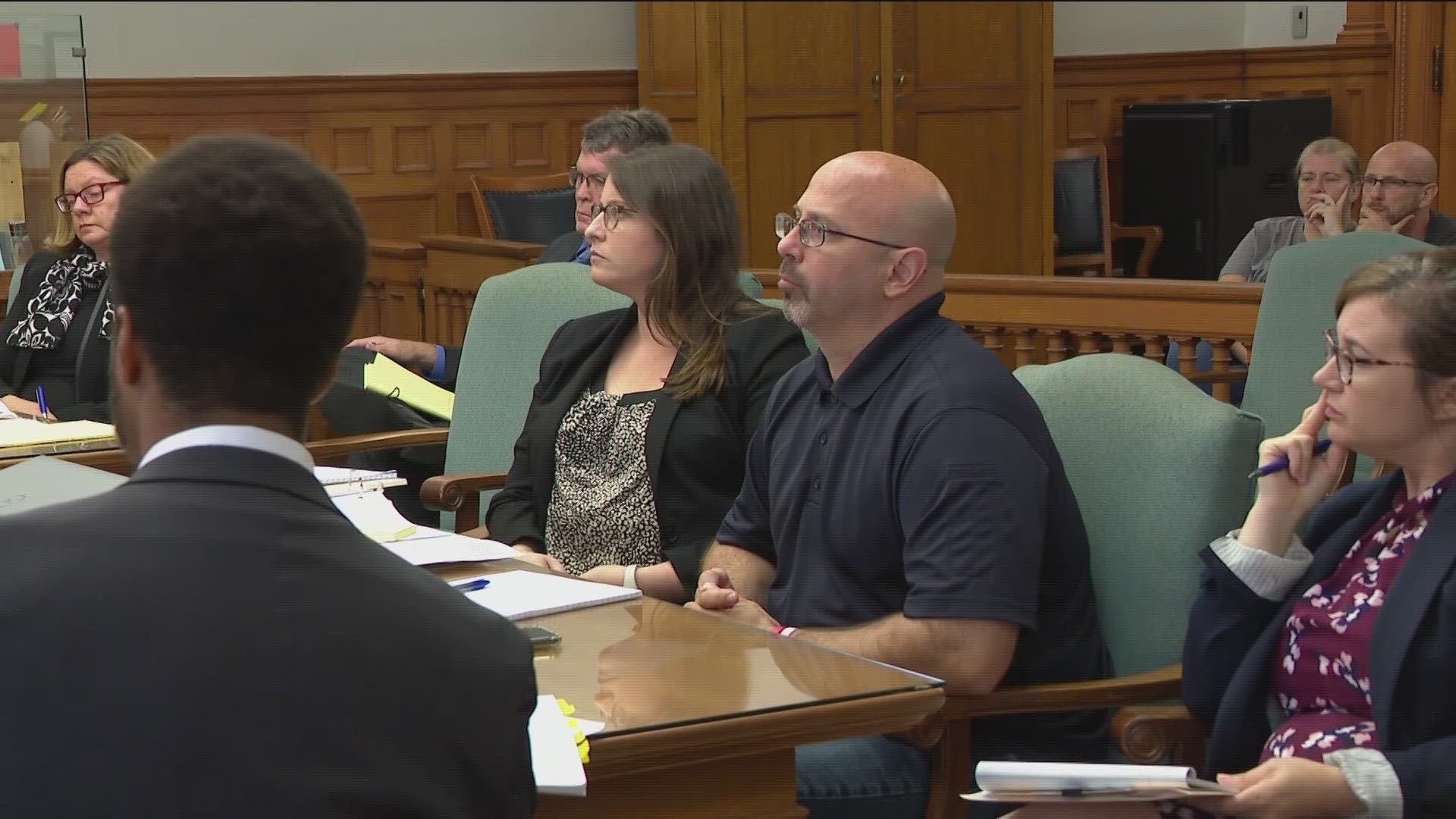TOLEDO, Ohio — A motion hearing for a new murder trial that was supposed to end Monday afternoon will now stretch for at least one more day, as both sides engaged in a spirited legal battle in the courtroom of Lucas County Common Pleas Court Judge Gary Cook.
Eric Misch was convicted in 1993 of helping to kill Vernon Huggins in Wilson Park, in the shadow of Woodward High School. Four other men have also been convicted in the case. Even though Misch gave a confession to the police, all five men insist they are innocent.
The motion for a new trial largely hinges on evidence that was never turned over to the defense or prosecutors. Judge Cook will need to rule on whether it is enough of an issue to grant Misch a new trial. Misch spent nearly 28 years in prison before being granted parole in 2020, creating a scenario where he could receive a new trial and be found guilty again.
Since it was the defense's motion, Misch's team got to call witnesses first. Dr. Hayley Cleary, an associate professor at Virginia Commonwealth University and an expert on juvenile false confessions, discussed her data and other topics on the issue. Misch, who was 16 at the time, originally told police he knew nothing, but he was later convinced to give a statement, saying he offered Huggins a cigarette so that his friends could jump him.
The 20-minute statement was provided in court. It was given after Misch talked to detectives for several hours, then was taken to the park -- and defense attorneys say -- and given details of the crime.
One of the reasons Cleary gave for juvenile confessions is that youth believe they can just go home if they give police what they want, something Misch testified to at trial.
"Juveniles often want to remove themselves from an uncomfortable environment, often at their own detriment," she said.
But Cleary also said there is a power imbalance between seasoned detectives and a young person.
"In this country, we socialize our young people to obey adults. Young people are more likely to be compliant in an interrogation setting," she added.
Joe Bodenhamer, the retired head of the Wrongful Conviction Project, said the group began working on Misch's case in 2010 or 2011. Nearly 10 copies of record requests to the Toledo Police Department and Lucas County Prosecutor's Office were introduced, beginning with a June 27, 2011, request to police.
Additional records were taken to the Ohio Bureau of Criminal Investigation in 2021. Those were then turned over to defense attorneys. Among the evidence were previously unknown calls to Crime Stoppers that blamed various people for the murder, including drug dealers, a man who killed a woman on the same night of Huggins' murder, and family members of the victim's girlfriend.
One of those family members was identified as carrying a broken-off, wooden table leg. Huggins suffered severe blunt-force injuries inflicted by what the coroner identified as a club-like object.
During Misch's confession, he said that the men he was with began kicking Huggins. He did not mention a club.
The spirited legal battle of the day was between Michael Loisel of the prosecutor's office and Paul Geller, Misch's former attorney. The longtime rivals sparred over how much difference the undisclosed evidence could have made.
At one point, Loisel asked if he really believed showing the jury the new evidence would have mattered, given the fact he had to overcome Misch's own confession.
"I don't know what tomorrow brings," a clearly exasperated Geller said. "But at least I would have had a shot to talk to the jury about a murder case, where a man was facing all this time. And I think that would have been negligent if I didn't talk about (the evidence), particularly the club."
Loisel did introduce additional investigative notes that indicated some of the Crime Stoppers witnesses could not be located or did not cooperate. He mentioned that Geller had to "hitch his wagon" to certain theories.
Misch attorney Joanna Sanchez seized on that comment, asking "You couldn't hitch your wagon to information you didn't have" and "You couldn't hitch your wagon to an alternative suspect you didn't know about, could you?" Geller replied no to both.
Loisel then followed up with "But you have no idea if it would have been helpful?"
When Geller said he believed it would have been helpful, Loisel replied, "You don't know that. You can't see the future."
"I had a jury of 12 people," Geller said. "I would have at least tried."
The state is expected to call its witnesses on Tuesday morning. Judge Cook could issue a ruling later in the day.

